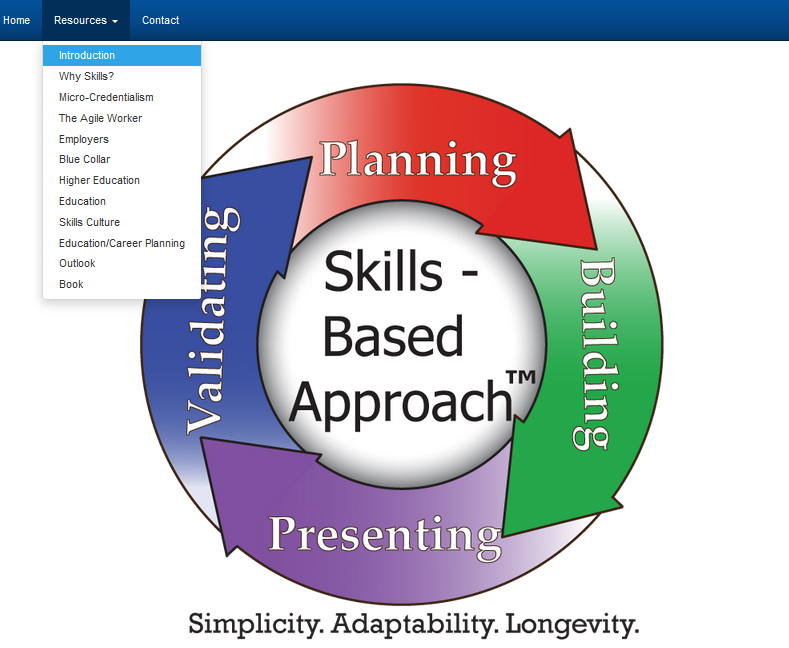Three advantages of Skills Based Approach are: simplicity, longevity, and adaptability.
Simplicity refers to ease of use. Everyone knows what they are dealing with: a skill set, competencies and methods, and constantly cycling through four stages. Skill Based Approach also solves the complexity of education and career planning. There are many ways to approach planning a career, so always funnel the results into a skill set to move forward. Students work towards a career five years in the future by acquiring skills in short, discrete tasks. They can pivot to a new learning path anytime. (Teenagers waffle on future careers constantly.)
Longevity refers to the long span of time Skills Based Approach is relevant. It is useful in education, higher education, and early career development. Once someone gets how the methodology and application works, everything makes sense.
Adaptability refers to how the latest technologies and applications plug into Skills Based Approach.
There is going to be tremendous growth in applications related to self-discovery, managing behaviors, and mapping out learning paths. The drivers are ‘big data’ and data analytics. For example, Knack recently teamed up with IBM to deliver a platform to discover talents and use assessments for education and career planning. (I linked Knack’s application to the Skills Based Approach Planning Stage objectives in a 2015 presentation.) Teenagers and young adults use any self-discovery application, simply plug in the results into the Planning Stage of Skills Based Approach.
There are many Competency Based Learning (CBL) initiatives taking place in higher education. The number of CBL programs increased from 50 in 2015 to 500 in 2016, and continues to grow. Teams of professors from Southern New Hampshire, Governors, Purdue , etc. are working to come up with standard assessments based on skills competencies rather than credit hours. Regardless of the source, users essentially plugin the new age assessments into the Building Stage of Skills Based Approach.
I still believe a personal website is the best way to present and validate skills. (Truth is, I first came up with the methodology while building a personal website platform.) There are many new applications in this space.
A buzz theme is ‘stacking credentials’ where users continue to add credentials. Badgeville has an interesting concept. Whatever the source or type of credential, users plug them in the Validating Stage of Skills-Based Approach.
What do you get from the core Skills Based Approach application? A methodology, framework to approach many complexities. Some of the functionality includes:
- Basis for lifelong learning. Tracks all learning (as tasks).
- Way to practice adaptive and personalized learning. Users work with an evolving skill set and competencies.
- Set goals, target methods, and communicate with and find mentors.
- Create learning plans for later career options.
- Widget to share a skill set with an expanded audience.
- Accumulate all types of credentials (badges, certification, awards, etc.).
- Cross integration functionality with Skills Label™ and Skill Syllabi.
Create Skills Based Approach account https://www.skillsbasedapproach.com … Get book A Skills Based Approach to Developing A Career FREE.
